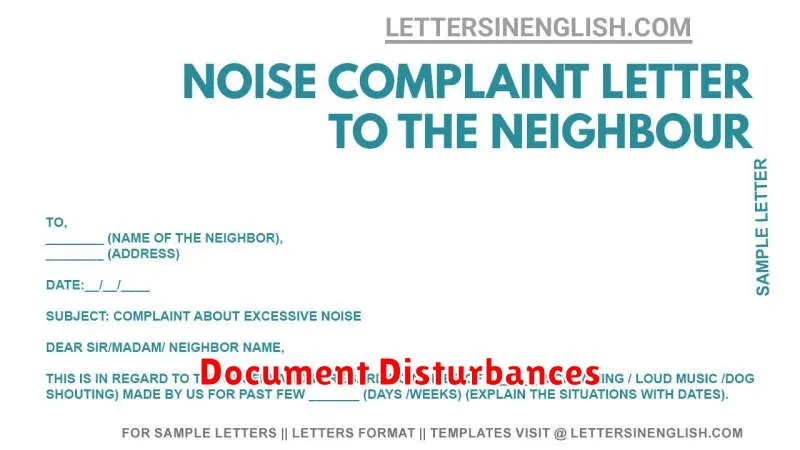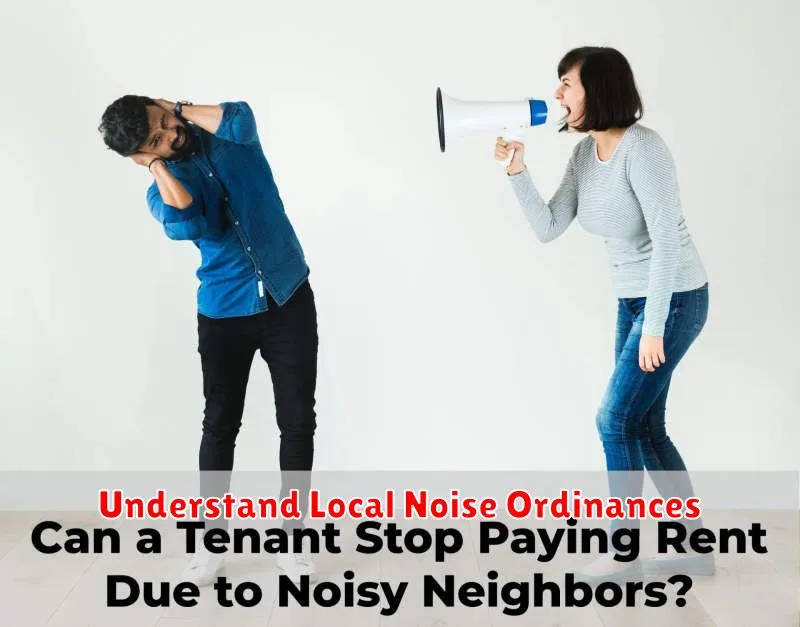Dealing with noisy neighbors can be a frustrating and stressful experience. Constant noise disruptions can significantly impact your quality of life, affecting sleep, concentration, and overall well-being. Whether you’re dealing with loud music, incessant barking dogs, late-night parties, or other intrusive sounds, it’s essential to address the issue effectively and legally. This article provides practical guidance on how to handle neighbor noise complaints peacefully and within the bounds of the law, offering strategies for communication, mediation, and legal recourse when necessary. Understanding your rights and responsibilities regarding noise pollution is crucial for resolving these disputes constructively.
Navigating neighbor noise issues requires a careful balance of assertiveness and diplomacy. While it’s important to protect your right to peaceful enjoyment of your property, approaching the situation with respect and understanding can often lead to more amicable resolutions. This article explores various methods for dealing with noisy neighbors, starting with direct communication and escalating to more formal approaches involving landlords, homeowner associations, or even legal authorities. Learn how to document noise disturbances effectively and understand the local ordinances and laws related to noise control in your area. By understanding your options and taking appropriate action, you can regain the peace and quiet you deserve.
Identify the Source of the Noise
Before taking any action, it’s crucial to pinpoint the exact source of the noise. Is it definitely your neighbor? Sometimes, noises can travel and seem to originate from one location when they are actually coming from somewhere else. Confirming the source will prevent unnecessary conflict and ensure you address the correct individual or issue.
Consider the type of noise. Is it music, talking, construction, pets, or something else? The nature of the noise can help you identify its source. For example, constant barking likely points to a dog, while loud music at 2 AM probably originates from a neighbor’s party. Documenting the type, time, and frequency of the noise will be helpful later if you need to escalate the situation.
Locating the noise within your neighbor’s property can also be beneficial. Is the noise coming from a specific room, the backyard, or another area? This information can be helpful when discussing the issue with your neighbor.
Document Disturbances

Keeping a detailed record of noise disturbances is crucial for resolving neighbor disputes effectively. This documentation serves as valuable evidence should you need to involve landlords, homeowner associations, or even law enforcement.
Create a log, noting the date, time, duration, and type of noise. Be specific. For instance, instead of “loud music,” describe it as “amplified bass music audible through shared wall.” If possible, record the noise level with a decibel meter app, although be aware these may not be admissible in court, they can still be useful.
Consider maintaining audio or video recordings of the disturbances, being mindful of privacy laws in your area. Avoid any confrontational actions while documenting, prioritizing your safety and well-being.
Speak Politely to Your Neighbor
Initiating a polite conversation is often the most effective first step in resolving noise issues. Remember, your neighbor may be unaware of how their activities are affecting you.
Approach them in a calm and respectful manner. Avoid accusatory language or raising your voice. Explain how the noise impacts you, focusing on specific examples rather than general complaints. For instance, instead of saying “You’re always too loud,” try saying, “I could hear the music last night until midnight, and it made it difficult to sleep.”
Be open to hearing their perspective and finding a mutually agreeable solution. This initial interaction can often resolve the issue without further escalation.
Report to Building Management
If peaceful direct communication doesn’t resolve the noise issue, the next step is to formally report the disturbance to your building management or landlord. This is particularly important if your neighbor is violating established building rules or local ordinances regarding noise levels.
When reporting, be specific and objective. Document the dates, times, and nature of the excessive noise. For example, instead of saying “They’re always loud,” provide details such as, “Loud music and shouting were heard on Tuesday, October 24th, between 11:00 PM and 1:00 AM.” This factual approach lends credibility to your complaint.
Keep a written log of each incident. This record will be invaluable if the issue escalates and requires further intervention. Building management often prefers written complaints, so be prepared to submit your documentation. They have a responsibility to address noise complaints and ensure a peaceful living environment for all residents.
Understand Local Noise Ordinances

Before taking any action, familiarize yourself with your local noise ordinances. These regulations, established by your city or county, define acceptable noise levels and times. They often specify quiet hours, restrictions on construction noise, and limitations on amplified sound.
Noise ordinances typically address issues like:
- Permissible noise levels at different times of day.
- Types of noise prohibited, such as loud music, barking dogs, or power tools.
- Specific regulations for construction or commercial activities.
- Penalties for violations, which can include fines or other legal action.
Access this information through your local government’s website, by contacting your city hall, or by visiting your local library. Understanding these ordinances is crucial for determining whether your neighbor’s noise constitutes a legal violation and how to proceed effectively.

